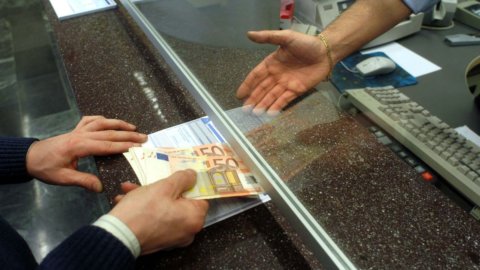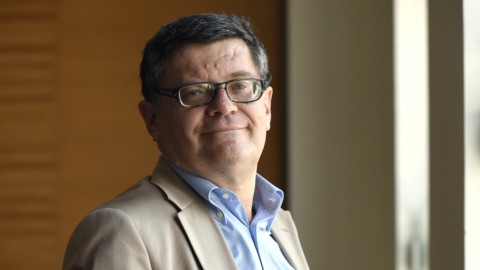In 2023, the general increase in prices has pushed the nominal sales of Large Italian organized distribution (+8,3% compared to 2022), but this had a negative impact on volumes (-1,7%). Compared to 2022, when retail prices increased more than purchasing from suppliers, this difference narrowed in 2023. Additionally, the prices consumers paid grew faster than store purchase prices from suppliers (+8,2% versus +6,3%).
This is what emerges from new edition ofObservatory on Italian and international large-scale retail trade mainly based on foodMediobanca research area which aggregates the economic-financial data of 129 national companies and 32 major international players in the period 2019-2022. The heightened interest in saving has also led to a decline in brand and store loyalty, with consumers rewarding private label (MDD) products, including those through the discount, whose sales in 2023 reached 25,4 billion (+7,2% annual average from 2019), representing almost a third of the entire market and getting ever closer to the European average (38% market share).
Margins and profits in large-scale retail trade in 2022
In 2022, the main Italian large-scale retail trade companies in the food sector have done so total earnings of 106,2 billion euros. Of these, 16,4 billion were obtained by foreign companies, which represents 15,4% of the total. In recent years, sales have increased by 20,4%, an average of 6,4% per year.
However, in 2022, i profits (measured with the Ebit margin indicator) fell to 1,9% compared to 2,2% the previous year. There are differences: companies that sell directly to consumers (the "retailers") had an average Ebit margin of 2,4%, while those that sell to shops (the "wholesalers") had an Ebit margin of 1,6%. %.
This is because, in 2022, retailers have benefited from a bonuses for companies that save energy, which saved around 0,29% of their profits. This bonus helped traditional large-scale retail companies more (with an 18,8% discount on taxes) than discounters (with a 3,7% discount).
Le foreign companies they underperformed: their earnings grew on average by +4,5% per year, while for Italian companies it was +6,7%. In 2022, the ROI for foreign companies was 4,1%, while for Italian ones it was 5%. Companies selling to the South sold more (+9,2% per year), followed by those from Central Italy (+5,4%), while those from the North-East sold more than the North-West (+6,1% versus +4,7%).
Less purchasing power? More discounters: Aldi queen of revenues
Aldi saw the largest growth in revenue between 2019 and 2022, with an average increase of 33,2% per year. They follow Radenza Group (+ 15,4%), In's Market (+ 14,6%), Tatò Paris (+ 13,4%), Apulia Distribution (+ 10,5%) and Md (+10,3%). Over the past year, Aldi remained in first place with an increase of 29,8% compared to 2021, followed by Apulia Distribuzione (+25,5%), Radenza Group (+17,1%) and In's Mercato (+16,1 ,XNUMX%).
Among discounters, EBIT profit margins in 2022 were highest for Eurospin (6,3%) and its franchising Cive (6,9%), followed by Ingross Levante (5,7%). As regards the return on investments, Radenza Group (33,1%), Tatò Paride (19,8%) and Az (19,7%) are in the lead, with Eurospin close by (19,1%) confirming itself as leader for profits accumulated between 2019 and 2022: 1.160 million, followed by VéGé at 940 million and Selex at 890 million.
Pac 2000 A (group Conad) is the largest Italian cooperative with sales in 2022 of 4.215 million, followed by Coop Alleanza 3.0 at 4.148 million and Conad Nord Ovest at 2.877 million, preceding Nova Coop to 2.701 million. Loan between members in the system Coop it fell from 8 billion in 2019 to 7,7 billion in 2022. In the last 4 years, the Coops have recorded net financial income of 456 million and write-downs of 470 million.
Eurospin champion of profits, followed by Aldi and Apulia
The market share of the stores discount increased from 18,9% in 2019 to 23% in 2023. In Italy, there are 94 discount stores for every million inhabitants, fewer than in Poland (128), Germany (115) and Spain (101), but more than in France (49) and the United Kingdom (27). In 2022, discount stores increased their turnover by +9,9% per year compared to 2019 (+5,5% for other stores) and by +13,4% compared to 2021 (+7,9% for traditional supermarkets).
It should be noted that in 2022 discount stores had higher profit margins: an Ebit margin of 4,3% compared to 1,3% for traditional supermarkets, with a return on investment (ROI) of 13,3% (3,6 .26,1% for other stores). Investments in facilities increased by 2019% between 2022 and 15, while they decreased by XNUMX% for other stores.
In detail, in 2022 Eurospin represented 31% of the market (from 26,9% in 2011), followed by Lidl which rose from 20,1% in 2011 to 22,3% in 2022 and Md from 5,4% to 15,6%. In five years, Aldi reached 2,7% of the discount market; they also advance D.More (from 3,5% in 2011 to 3,9% in 2022) e Price (from 0,8% to 2,3%). On the contrary, the shares of Penny Market fell from 8% to 5,9%, In's 5,5% to 4,6%, Todis 4,7% to 4%, Ard from 2,1% to 1,9% e Ecom from 2,2% to 1,6%, together with other smaller brands (from 20,7% in 2011 to 4,1% in 2022), making the market more concentrated. Aldi recorded sales of 663,4 million in 2022 across 139 stores (compared to 50 in 2019); since the start of operations in Italy in 2018, it has accumulated losses of 481,8 million, including those generated by expenses for rental of premises by the subsidiary.
A look at organized distribution
In the period between 2019 and 2022, the market share of the seven main Organized Distribution groups (excluding Conad and Coop) grew by more than 5%. VéGé it was the most attractive for new members, with six new entries, two of which came from other structures (D.IT and C3). In 2022, Agora stood out for the highest profitability, with an EBIT margin of 4,1% and a return on investment of 10,2%, along with sales growing by 9,6% on average annually since 2019.
The average annual growth rate of +6,3% between 2019 and 2022 was surpassed by Selex (+7%), but Selex lagged behind on margins, with an Ebit margin of 1,7% and an ROI of 5,1%. C3 and VéGé returned a net operating margin to turnover ratio of 3,2% and 2,2% respectively, higher than the average of 2,1%, but with different levels of return on investments: VéGé above the average of 6,5% (7,7%), while C3 below (6,1%) with the lowest average annual growth rate of turnover (+3,7%).
There are 25 organized distribution companies with a turnover exceeding 500 million. The largest increase in turnover in 2022 was recorded by Metro Italy (+34,7% compared to 2021), followed by Syneos (Ergon) (+20,1%), i Tosano Cerea supermarkets (+ 18,4%), Multicede (+ 16,7%) and Retail Evolution Holding (Iperal) (+15%). Arena group presents the best return on invested capital index of 17,8%, followed by Rossetto Group (17,7%) and another six with double-digit indices.
As many as 22 associates achieved a turnover of between 200 and 500 million euros in 2022. Among these, the highest turnover growth between 2021 and 2022 was recorded by Sidi Piccolo – Innovative Distribution System (+ 21,4%), followed by 5 R (Cds) (+14,4%) e Visotto supermarkets (+14%). Furthermore, in 2022, Sidi Piccolo – Sistema Distributivo Innovativo and 5 Erre (Cds) showed net operating margins (Ebit) of 3,7% and 3,6%, respectively, behind Isa – Agri-food Services Industry (4,5%) and Abundance (4,4%), with an ROI of 12,6% in third position after Sisa Sicilia (20,8%) and Gambardella (19%).
The major international operators
In 2022, the main international retailers recorded a turnover ranging from the 568 billion euros of the US Walmart to Britain's 20,8 billion Wm Morrison. Among these, the Dutch Ahold Delhaize has the largest international presence (80,1%), followed by Jeronimo Martins which operates mainly in Poland (77,6%), from the Japanese Seven & i (75,3%, concentrated mainly in North America) and the French Carrefour (53,7%), Casino (53%) ed Elo-Auchan (47%).
The international panel reported an average investment return of 9,1% in 2022, down from 10,3% in 2021. As for sales per square meter in their home market, Esselunga is at the top with 15.576 euros per square meter, followed by Tesco in the United Kingdom (12.527), Empire in Canada (11.862), Woolworths in Australia (11.719), J Sainsbury in the United Kingdom (11.672), Coles in Australia (11.603) e Wm Morrison in the UK (11.099).





